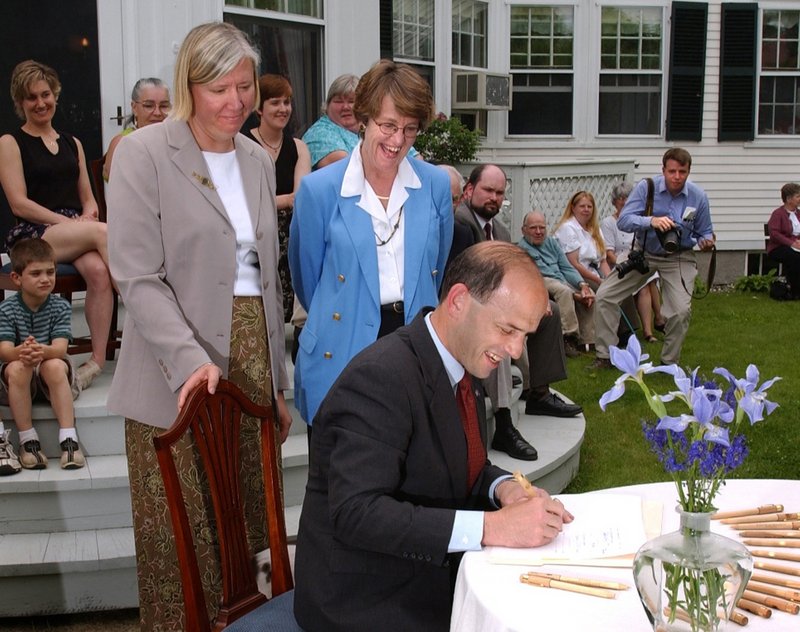AUGUSTA – Gov. John Baldacci’s first executive order — signed his first day in office — was to create the Governor’s Office of Health Policy and Finance.
It created DirigoHealth, which was described by some as the most significant piece of state legislation passed in the country that year.
Eight years later, it’s a program maligned by critics and targeted by the incoming Republican administration to be “put out of its misery.”
While some say he should have abandoned it long ago — the program has long been a rallying cry for critics of government spending and over-reaching policies — Baldacci has held steadfast to the program.
He only wishes he had explained it better.
As originally proposed, Dirigo sought to cover all of Maine’s uninsured within five years. In 2003, that number stood around 136,000 people.
But as it was negotiated through the legislative process, the funding mechanism changed — which meant it would not be able to live up to the original expectation, he said in a recent interview.
“I never got back to people to tell them about the change in the program,” he said. “I didn’t go back out and tell people it was going to be smaller in scope.”
Since it began, the program has insured more than 30,000 people and has a current enrollment of about 14,000.
An effort by legislators to find a more stable funding mechanism — by taxing beer, wine and soda — was rejected by voters through a people’s veto in 2008. In addition to premiums paid by companies and individuals, the program also is funded by a tax on paid insurance claims.
Pat LaMarche, a Green Independent who ran against Baldacci in the 2006 gubernatorial election, said the uninsured would have been better off if the state had cut them a check directly.
She said Dirigo, in which the state partners with existing health insurance companies, amounts to a giveaway to the insurers.
“There’s no social justice when a whole pile of people are without health care,” she said. “Baldacci was a perfect example of someone who tried to do the right thing but sold out his ideals.”
Lee Umphrey, Baldacci’s spokesman and adviser from 2003-05, said Baldacci should be proud of Dirigo.
“Dirigo should be at the top of his list for what he’s remembered for,” Umphrey said. “There was a need. It was successful in that it provided health care for a good number of people. It put Maine in a position with national reform to access that and have it implemented in Maine.”
And though most people think of Dirigo as an insurance product, supporters say efforts to focus on quality, cost and access have improved the state’s health care system.
Despite near constant criticism — it was too expensive, too generous, there were waiting lists — Baldacci said he stood by it because of the personal stories from people who benefited from the program.
“When you hear the stories about the person whose mother had cancer, and she didn’t have insurance so she didn’t have herself checked until she had Dirigo,” he said. “She was able to get the screening. She had cancer, but they were able to catch it early enough so she could get the treatment.”
“How does that make you feel,” he asked, “when somebody tells you they were actually able to save their life or live a longer life because of having this insurance rather than not?”
Send questions/comments to the editors.


